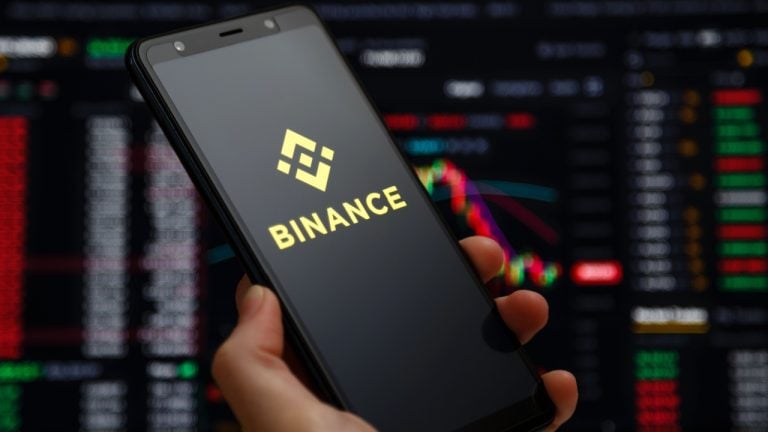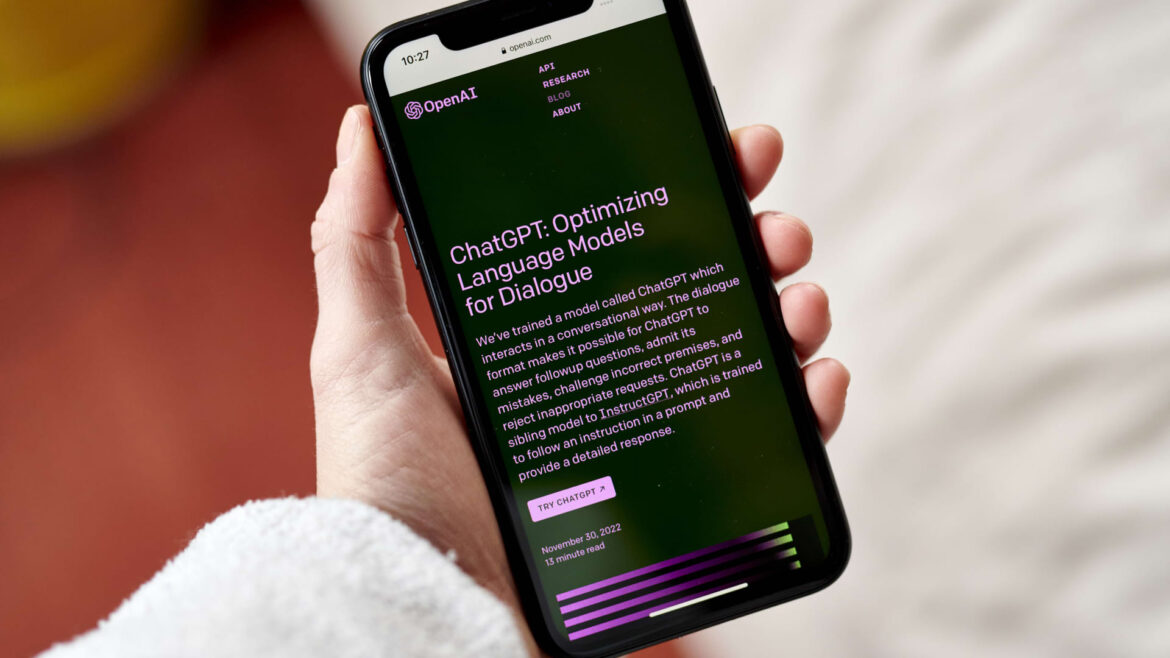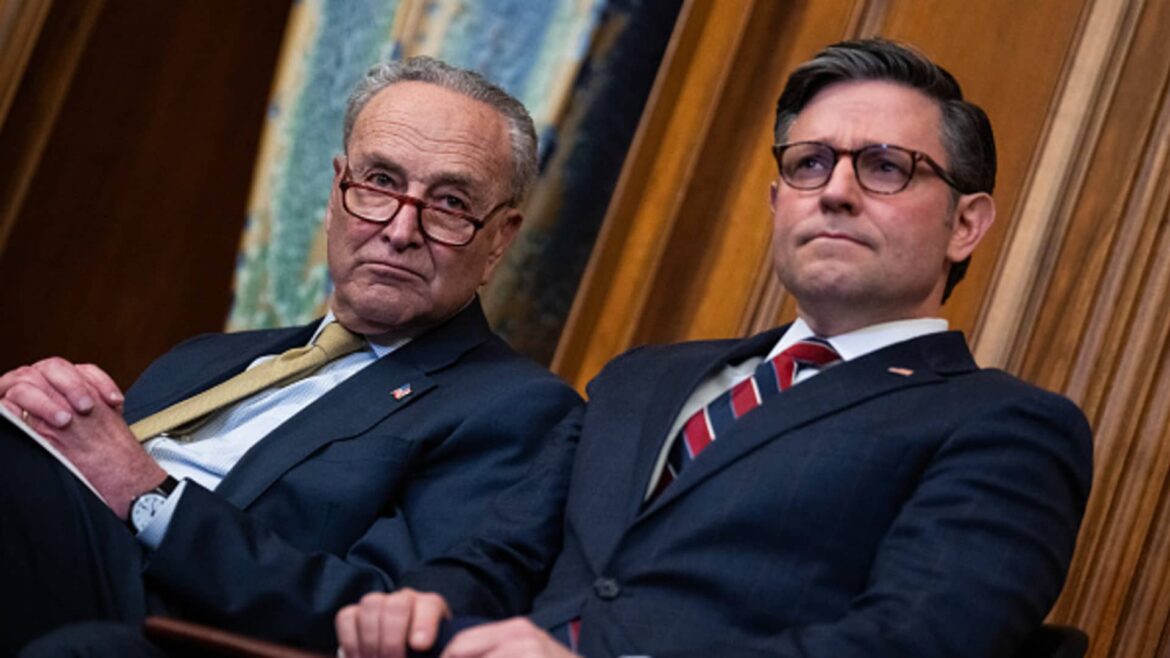 The United States, United Kingdom, and Germany rank among the top countries holding cryptocurrencies at the government level, according to data from Arkham Intelligence. The crypto analytic firm’s onchain analysis shows that the U.S. government holds 212,847 bitcoins while El Salvador has been purchasing one bitcoin daily as announced by its president. Top Government Holders […]
The United States, United Kingdom, and Germany rank among the top countries holding cryptocurrencies at the government level, according to data from Arkham Intelligence. The crypto analytic firm’s onchain analysis shows that the U.S. government holds 212,847 bitcoins while El Salvador has been purchasing one bitcoin daily as announced by its president. Top Government Holders […]
Source link
government
The U.S. government is considering laws to help society adapt to the introduction of artificial intelligence.
Early users of the technology are already seeing labor productivity gains. For example, Klarna, a buy now, pay later financial services provider, estimates that its AI assistant tool will increase its profit outcome by $40 million by the end of 2024.
“It basically does the job of 700 full-time agents,” Klarna CEO Sebastian Siemiatkowski said in an interview with CNBC. “It basically was capable of taking care of two-thirds of all the incoming errands that we have over chat.”
Klarna’s AI assistant tool is built on OpenAI’s systems, which power both ChatGPT and Sora — two products that have captured the attention of both the general public and Congress.
In 2023, members of Congress convened panels, private dinners, and learning sessions with high-profile tech executives including Sam Altman, CEO at OpenAI. The White House followed up by seeking commitment from 15 private industry leaders to help lawmakers understand the best way to identify risks and make use of the new technologies. The list includes some of the biggest players in the tech sector, alongside newcomers such as Anthropic and OpenAI.
The Senate Task Force on AI, established in 2019, has passed at least 15 bills into law that focus on research and risk assessment. But when compared with measures passed by the European Union in 2024, the U.S. regulatory environment appears to be relatively relaxed.
“The folks in Brussels, they come up with a lot of bureaucratic rules that make it harder for companies to innovate,” Erik Brynjolfsson, a senior fellow at Stanford Institute for Human-Centered AI, said in an interview with CNBC. “The entrepreneurial environment isn’t there the way it is in the United States.”
Economists have worried for years that artificial intelligence could sink job prospects for white-collar workers, similar to the effects globalization has had on blue-collar workers in the past. A study from the International Monetary Fund suggests that at least 60% of work in advanced economies would be exposed to changes that stem from the wide adoption of artificial intelligence.
In 2023, lawmakers in the New York State Assembly put forward a measure to limit the expected impact of tech-driven layoffs with robot taxes. The idea is to introduce a cost for companies that use technology to displace workers within the state. As of April 2024, the bill remains in committee with an uncertain future.
Many economists have said that robot taxes, if used at all, should be set at a relatively low level. In the U.S. both employers and employees face payroll taxes of 7.65% of income. But the optimal rate for a robot tax would be between 1% and 3.7%, according to researchers at the Massachusetts Institute of Technology.
“It’s good for us to have output and productivity. And so I’m not sure we want to tax those,” said Brynjolfsson. “Robots are part of what boost technological growth and give us that higher productivity.”
“There will be a time in the future where robots can do most of what humans currently do,” Brynjolfsson said. “We’re not there yet.”
Watch the video above to learn more about the U.S. government’s plan to regulate artificial intelligence.
Chinese Government Launches ‘Ultra-Large Scale Blockchain Infrastructure Platform’
 The Chinese government is reportedly launching an “ultra-large-scale blockchain infrastructure platform for the Belt and Road Initiative.” The platform will support the implementation of cross-border cooperation projects along the Belt and Road Initiative and provide the base for developing applications that showcase collaboration across borders. ‘Ultra-Large Scale Blockchain Infrastructure Platform’ The Chinese government has reportedly […]
The Chinese government is reportedly launching an “ultra-large-scale blockchain infrastructure platform for the Belt and Road Initiative.” The platform will support the implementation of cross-border cooperation projects along the Belt and Road Initiative and provide the base for developing applications that showcase collaboration across borders. ‘Ultra-Large Scale Blockchain Infrastructure Platform’ The Chinese government has reportedly […]
Source link
Detained Binance Executive Escapes Custody in Nigeria, Government to Request Interpol Assistance
 A senior executive at Binance, who was detained by Nigerian authorities in late February, has since escaped from custody. The executive Nadeem Anjarwalla is believed to have left the country using a Kenyan passport. The Nigerian government confirmed Anjarwalla’s escape and said it would ask Interpol to issue an international arrest warrant. Binance Executive Departs […]
A senior executive at Binance, who was detained by Nigerian authorities in late February, has since escaped from custody. The executive Nadeem Anjarwalla is believed to have left the country using a Kenyan passport. The Nigerian government confirmed Anjarwalla’s escape and said it would ask Interpol to issue an international arrest warrant. Binance Executive Departs […]
Source link
China blocks use of Intel and AMD chips in government computers, FT reports
(Reuters) -China has introduced guidelines to phase out U.S. microprocessors from Intel and AMD from government personal computers and servers, the Financial Times reported on Sunday.
The procurement guidance also seeks to sideline Microsoft’s Windows operating system and foreign-made database software in favour of domestic options, the report said.
Government agencies above the township level have been told to include criteria requiring “safe and reliable” processors and operating systems when making purchases, the newspaper said.
China’s industry ministry in late December issued a statement with three separate lists of CPUs, operating systems and centralised database deemed “safe and reliable” for three years after the publication date, all from Chinese companies, Reuters checks showed.
The State Council Information Office, which handles media queries for the council, China’s cabinet, did not immediately respond to a faxed request for comment.
Intel and AMD did not immediately respond to Reuters request for comment.
The U.S. has been aiming to boost domestic semiconductor output and reduce reliance on China and Taiwan with the Biden administration’s 2022 CHIPS and Science Act.
It is designed to bolster U.S. semiconductors and contains financial aid for domestic production with subsidies for production of advanced chips.
(Reporting by Akanksha Khushi in Bengaluru; Editing by Christian Schmollinger, William Mallard and Lincoln Feast.)
Nigeria’s Binance Impasse: Senior Executives Detained at Government ‘Guesthouse’ for 14 Days
 Tigran Gambaryan, a former U.S. federal agent, is one of two Binance executives being held without charge by Nigerian authorities. A local court approved the executives’ 14-day detention. Recent media reports suggest that Nigerian officials have requested Binance to disclose the identities and transaction histories of its top 100 users. Detained Executives’ Families Demand Their […]
Tigran Gambaryan, a former U.S. federal agent, is one of two Binance executives being held without charge by Nigerian authorities. A local court approved the executives’ 14-day detention. Recent media reports suggest that Nigerian officials have requested Binance to disclose the identities and transaction histories of its top 100 users. Detained Executives’ Families Demand Their […]
Source link
Congress unveils first six budget bills to avert government shutdown
Senate Majority Leader Charles Schumer, D-N.Y., left, and Speaker of the House Mike Johnson, R-La., attend a Menorah lighting to celebrate the eight-day festival of Hanukkah, in the U.S. Capitol on Tuesday, December 12, 2023.
Tom Williams | Cq-roll Call, Inc. | Getty Images
Congressional lawmakers on Sunday released the details of the first six budget bills needed to keep government agencies funded before they run out of money and a partial government shutdown takes effect this coming weekend.
The 1,050-page appropriations package has funding for six major areas of government that encompass military and veterans affairs departments, agriculture, commerce, energy and water, transportation, housing, and more.
Funding for those departments was due to expire last Friday, March 1, but congressional leaders struck a deal on Wednesday to extend those deadlines by a week and avert a partial government shutdown. It was the fourth such funding extension this fiscal year, as Congress has struggled to settle on a long-term budget plan.
This partial budget deal is a step forward in the push to secure a permanent budget plan for the rest of the fiscal year, which started Oct. 1.
But these six funding bills are just half the battle.
The other six appropriations bills that keep the rest of the government funded are due to expire March 22, giving Capitol Hill just over two weeks to negotiate the other half of the government’s spending plan.
Read more CNBC politics coverage
Still, leaders on both sides of the aisle are touting the first half of funding package as a win, though for different reasons.
Democrats are trumpeting the continued full funding of a special food assistance program for women, infants and children. They also secured wins on rent assistance and pay for infrastructure employees like air traffic controllers and railway inspectors.
“Throughout the negotiations, Democrats fought hard to protect against cuts to housing and nutrition programs, and keep out harmful provisions that would further restrict access to women’s health, or roll back the progress we’ve made to fight climate change,” Senate Majority Leader Chuck Schumer, D-N.Y., said in a Sunday statement.
Meanwhile, Republicans are trumpeting victories on veterans’ gun ownership and funding cuts to government agencies like the Environmental Protection Agency, the FBI and the Bureau of Alcohol, Tobacco, Firearms and Explosives.
“House Republicans secured key conservative policy victories, rejected left-wing proposals, and imposed sharp cuts to agencies and programs critical to President Biden’s agenda,” House Speaker Mike Johnson, R-La., said in a statement Sunday.
The funding package now heads to the House for a vote where it will likely face opposition from the House Freedom Caucus, a coalition of Republican hard-liners who have relentlessly opposed budget compromises over the past fiscal year.
“The clock is now ticking until government funding runs out this Friday. Between now and the end of the week, the House must quickly pass and send the Senate this bipartisan package,” Schumer said Sunday. “Once again, it will only be bipartisanship that gets us across the finish line.”
Don’t miss these stories from CNBC PRO:
The Nigerian Government and Binance: The Way Forward — CMO of Flincap
 The promise of the blockchain and cryptocurrency still remains strong. Globally, there continues to be growing interest in the blockchain and peer-to-peer exchanges. We are seeing the institutional adoption of crypto and a rise in interest in retail adoption, too. We have seen the example in the approval of ETFs for bitcoin. However, with every […]
The promise of the blockchain and cryptocurrency still remains strong. Globally, there continues to be growing interest in the blockchain and peer-to-peer exchanges. We are seeing the institutional adoption of crypto and a rise in interest in retail adoption, too. We have seen the example in the approval of ETFs for bitcoin. However, with every […]
Source link
 The Nigerian government has reportedly slapped the cryptocurrency exchange Binance with a $10 billion fine. According to a Nigerian government official, Binance is being punished for causing the local currency’s recent plunge against major currencies. Binance’s Alleged Influence on the Exchange Rate The Nigerian government is reportedly demanding a $10 billion fine from the crypto […]
The Nigerian government has reportedly slapped the cryptocurrency exchange Binance with a $10 billion fine. According to a Nigerian government official, Binance is being punished for causing the local currency’s recent plunge against major currencies. Binance’s Alleged Influence on the Exchange Rate The Nigerian government is reportedly demanding a $10 billion fine from the crypto […]
Source link
Warren Buffett joked he’d be ‘eating Thanksgiving dinner at McDonald’s’ if the US government didn’t bail out the banks in 2008

-
Warren Buffett once joked he would have faced a fast-food Thanksgiving without the 2008 bailouts.
-
“If the government hadn’t acted, I would be eating Thanksgiving dinner at McDonald’s,” he quipped.
-
Buffett often eats McDonald’s for breakfast, and owns one of the restaurant chain’s gold cards.
Warren Buffett would have celebrated Thanksgiving with a Big Mac, fries, and a milkshake in 2008 if US officials hadn’t bailed out the banks, he joked in a CNBC interview in 2010.
“If the government hadn’t acted, I would be eating Thanksgiving dinner at McDonald’s,” he quipped.
The billionaire investor and Berkshire Hathaway CEO was underscoring the enormous threat posed by the financial crisis in 2008. However, few would put it past him to follow through on a fast-food Thanksgiving.
Buffett typically grabs breakfast at McDonald’s during his morning drive to the office, opting for a pricier bacon-egg-and-cheese biscuit if he’s feeling especially wealthy. He also carries one of the restaurant chain’s gold cards, which entitles him to free McDonald’s meals for life in his hometown of Omaha, Nebraska.
“That’s why the Buffett family has Christmas dinner at McDonald’s,” he joked in a CNBC interview in 2007.
Buffett isn’t shy about showing his love for McDonald’s or his thriftiness — even when he’s spending time with Bill Gates, one of the wealthiest men in the world.
“Remember the laugh we had when we traveled together to Hong Kong and decided to get lunch at McDonald’s?” Gates wrote in a public letter to Buffett in 2017. “You offered to pay, dug into your pocket, and pulled out…coupons!”
Giving thanks to the government
Buffett joked about celebrating Thanksgiving at McDonald’s shortly after he praised the US government’s financial-crisis interventions in a New York Times op-ed article.
“The challenge was huge, and many people thought you were not up to it,” he wrote. “Well, Uncle Sam, you delivered.”
The investor signed the letter “Your grateful nephew, Warren.”
There are few people more qualified than Buffett to judge the federal response in that period. When credit markets seized up, Berkshire invested billions of dollars in blue-chip companies including Goldman Sachs and General Electric, and it loaned much-needed cash to ailing businesses such as Harley-Davidson.
The investor also called Treasury Secretary Hank Paulson in October 2008 to suggest the US government invest directly in the banks instead of only buying their assets, inspiring a program that might have staved off an even deeper recession.
Read the original article on Business Insider










